Essential Japanese phrases
Most Japanese locals have little knowledge of English, but that doesn’t mean you have to be fluent in their language to get by. We’ve compiled 10 useful phrases, besides basic greetings and how to say “thank you”, that any foreigner will find useful. With this guide, all that’s left to do is memorising and practising these phrases before jetting off.
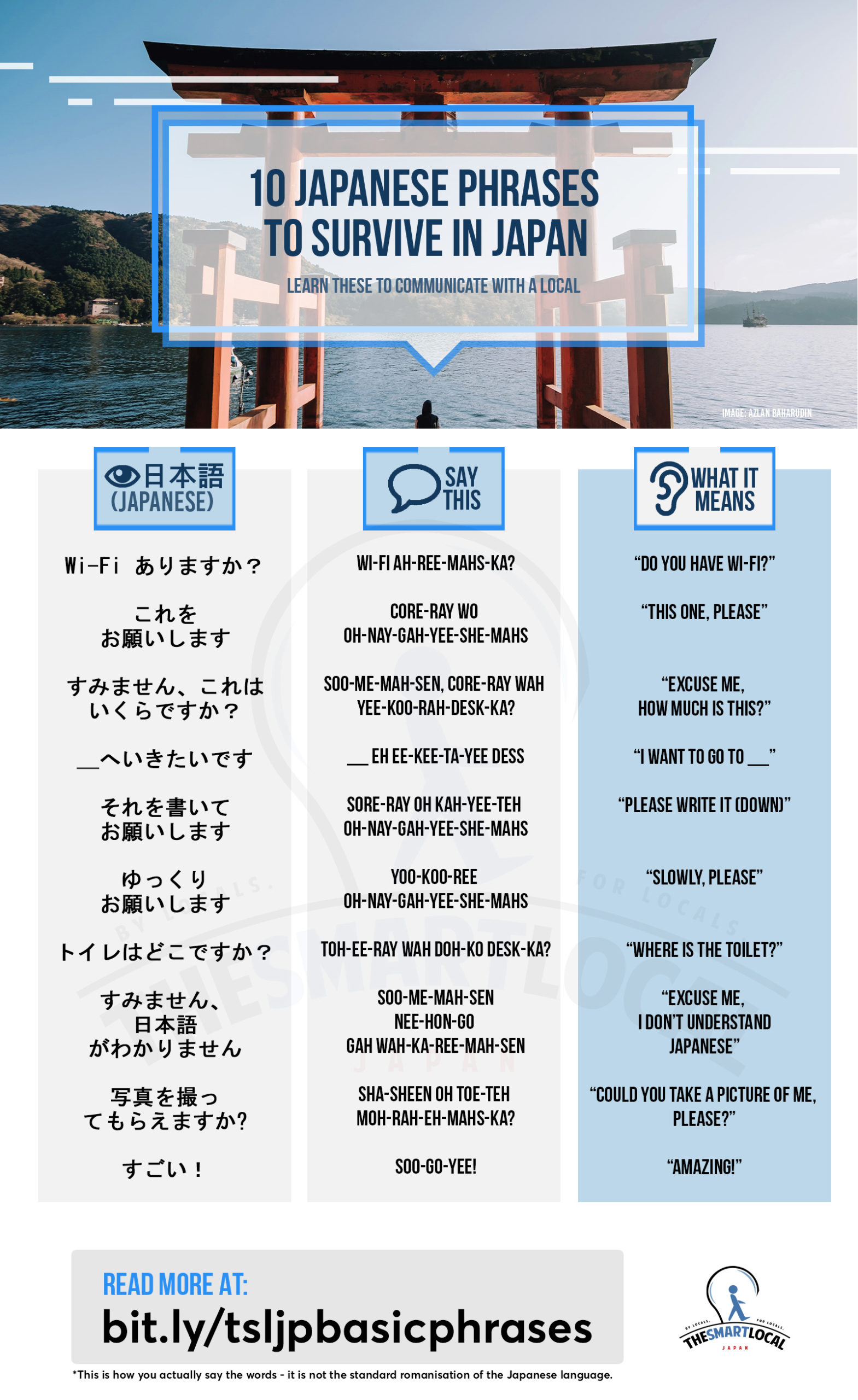
Download this infographic to refer to before your next trip to Japan.
We also have specific guides on Japanese phrases and etiquette to help you along:
- Japanese phrases for shopping
- Japanese phrases for eating out
- Train etiquette in Japan
- Japanese nightlife rules
- Japanese etiquette on dining out
1. “Do you have Wi-Fi?” (Wi-Fi arimasuka?)

Image adapted from: Linh Nguyen
In Japanese: Wi-Fi ありますか?
How to pronounce: Wi-Fi ah-ree-mahs-ka?
Travelling without mobile data is disastrous for most travellers, especially if you’re someone who fears getting stranded in a foreign land with no internet connection and access to information. Thankfully, with places like train stations and cafes offering free Wi-Fi services, all you gotta do is seek out a staff attendant and ask “Wi-Fi arimasuka?”.
2. “This one, please” (Kore wo onegaishimasu)
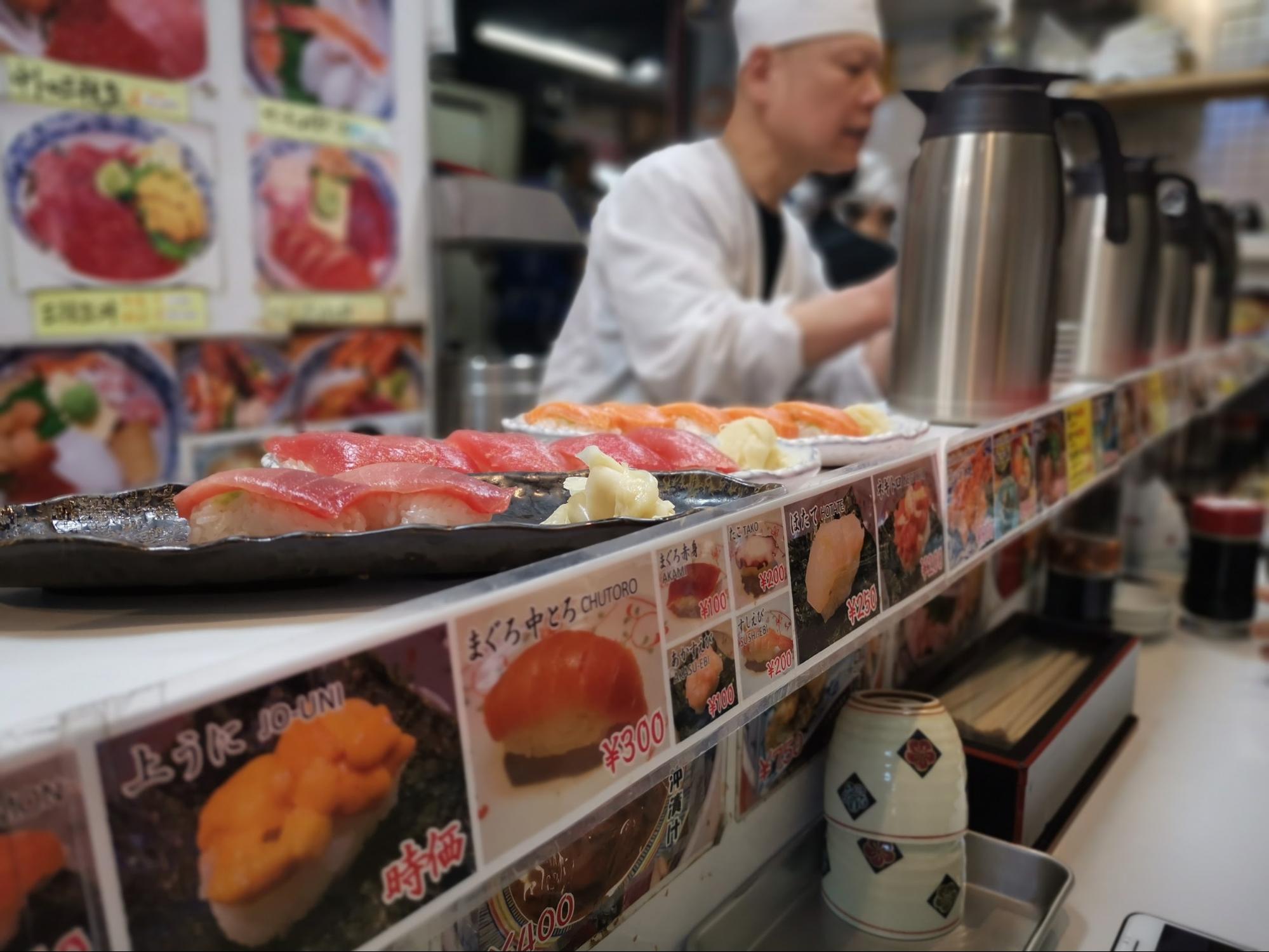
Image credit: Michael Wu
In Japanese: これをお願いします
How to pronounce: Core-ray oh oh-nay-gah-yee-she-mahs
Here’s a one-size-fits-all solution when you’re ordering food off a Japanese menu or snagging the latest hypebeast apparel. Simply point at what you want, say “kore wo onegaishimasu”, and relish in the joy of your latest purchase.
3. “Excuse me, how much is this?” (Sumimasen, kore wa ikura desuka?)

Image credit: Charles Deluvio
In Japanese: すみません、これはいくらですか?
How to pronounce: Soo-me-mah-sen, core-ray wah yee-koo-rah-desk-ka?
Learn to ask for the price in Japanese so you can go from merely window-shopping to bringing home that coveted piece of outerwear you’ve set your heart on. Follow up with “kore wo onegaishimasu” if the price sounds friendly to your wallet. But if not, simply smile at the shop attendant, say “arigato”, and walk away.
4. “I want to go to __” (__ e ikitai desu)
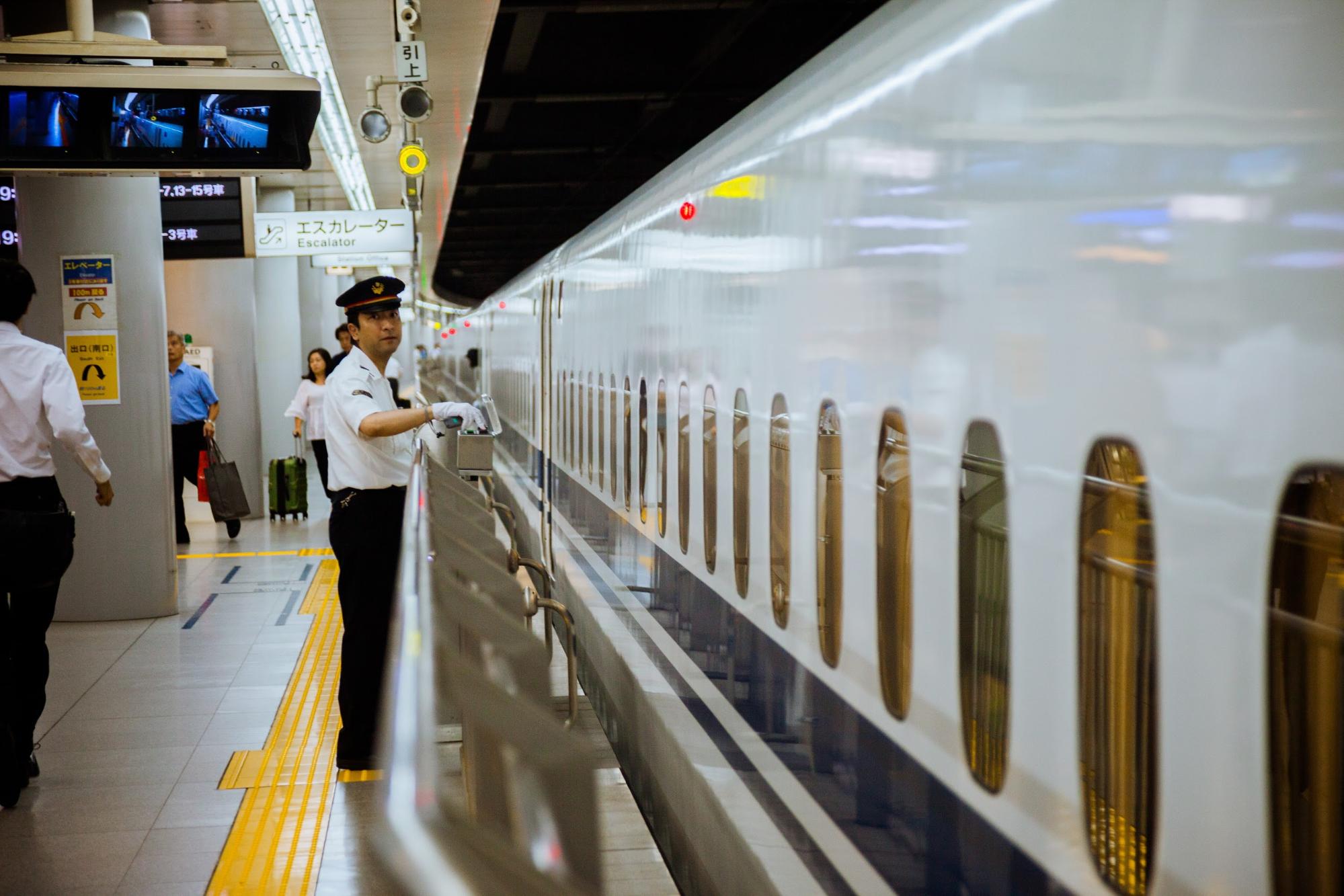
Image credit: Victoriano Izquierdo
In Japanese: __ へいきたいです
How to pronounce: __ eh ee-kee-ta-yee dess
Finding your way in a foreign city isn’t as daunting as it seems, with the help of GPS and Google Maps. However, Japan’s legendary train system may be an exception. With over 800 stations and multiple train lines, even locals can have trouble figuring out where to go.
Thankfully, there are train attendants who can help you get your bearings. They are easily identified by their distinctive uniform. Once you have their attention, let them know your destination and ask away.
Tip: Read this to help you navigate Tokyo’s maze-like train system.
5. “Please write it (down)” (Sore wo kaite onegaishimasu)

Image adapted from: Kaleidico
In Japanese: それを書いてお願いします
How to pronounce: sore-ray oh kah-yee-teh oh-nay-gah-yee-she-mahs
Asking for directions can be hit-and-miss since most Japanese aren’t well-versed in English, or are too shy to reply in a foreign language. Try providing a piece of paper and requesting them to pen it down or draw the routes out instead.
6. “Slowly, please” (Yukkuri onegaishimasu)
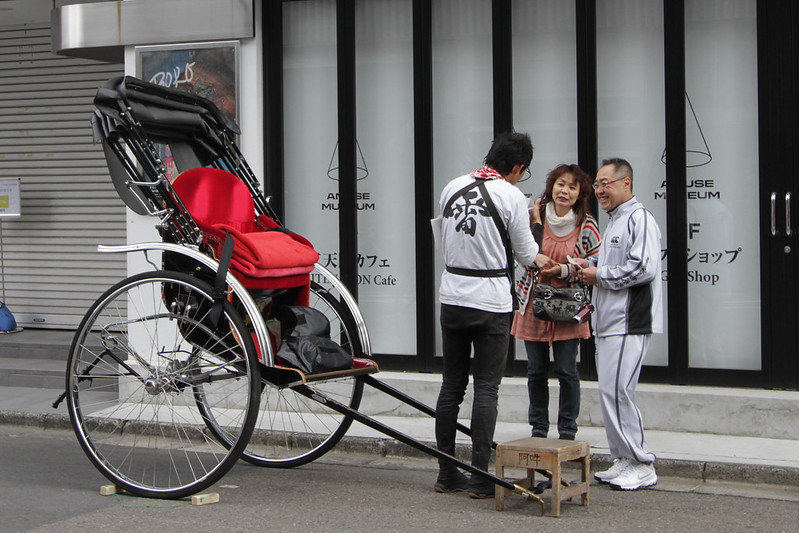
Image credit: Raizel Kiong
In Japanese: ゆっくりお願いします
How to pronounce: yoo-koo-ree oh-nay-gah-yee-she-mahs
If you manage to come across a Japanese who speaks English, Lady Luck may be smiling at you. “Yukkuri onegaishimasu” may come in handy if they are speaking too fast or you have trouble comprehending what they are explaining. If all else fails, refer to the phrase above and get them to write it down.
7. “Where is the toilet?” (Toire wa doko desuka?)

Image credit: @toilet_map_of_tokyo
In Japanese: トイレはどこですか?
How to pronounce: Toh-ee-ray wah doh-ko desk-ka?
Heading to the loo is often the first order of business after you’ve touched down or finished a meal. Whether you’re touching up your makeup or answering the call of nature, this handy phrase will tide you through.
Tip: You can also replace “tire” (toilet) with other destinations in mind. For example, if you’re looking for the exit, say “deguchi wa doko desuka?”.
| Train station | Eki (Eh-kee) |
| Exit/Way out | Deguchi (Deh-goo-chee) |
8. “Excuse me, I don’t understand Japanese” (Sumimasen, nihongo ga wakarimasen)
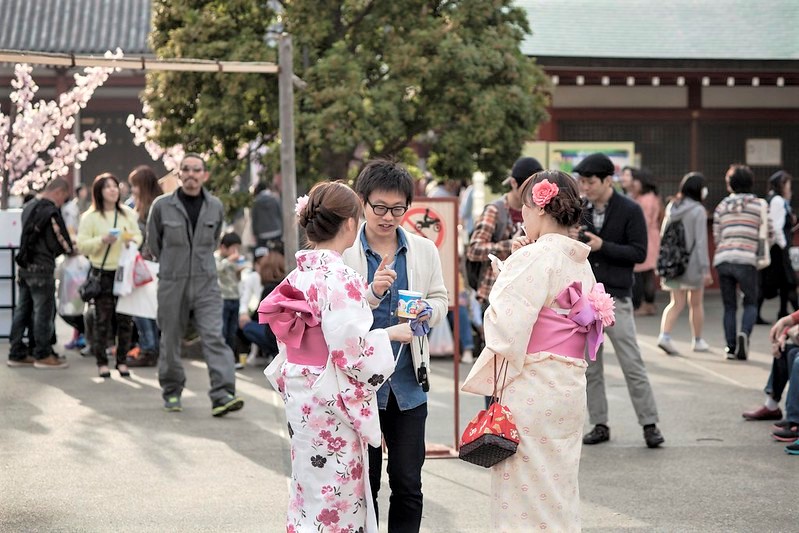
Image adapted from: George N
In Japanese: すみません、日本語がわかりません
How to pronounce: Soo-me-mah-sen nee-hon-go gah wah-ka-ree-mah-sen
Here’s something that many fair-skinned Asians might relate to – getting mistaken for a Japanese native. If you’re bombarded with a slew of Japanese by a local, don’t just stare at them blankly. Say “sumimasen, nihongo-ga wakarimasen” to let them know that you can’t speak Japanese.
9. “Could you take a picture of me, please?” (Shashin o totte moraemasuka?)

Image credit: DENIS MALERBI
In Japanese: 写真を撮ってもらえますか?
How to pronounce: Sha-sheen oh toh-teh moh-rah-eh-mahs-ka?
No trip is complete without snapshots as proof of your vacation. Couples might have an Instagram Boyfriend to rely on, but solo travellers only have their selfie sticks. If you’re a self-proclaimed noob at taking good pictures, try asking a stranger for help. Who knows, it might boost your chances of getting a dope shot.
10. “Amazing!” (Sugoi!)
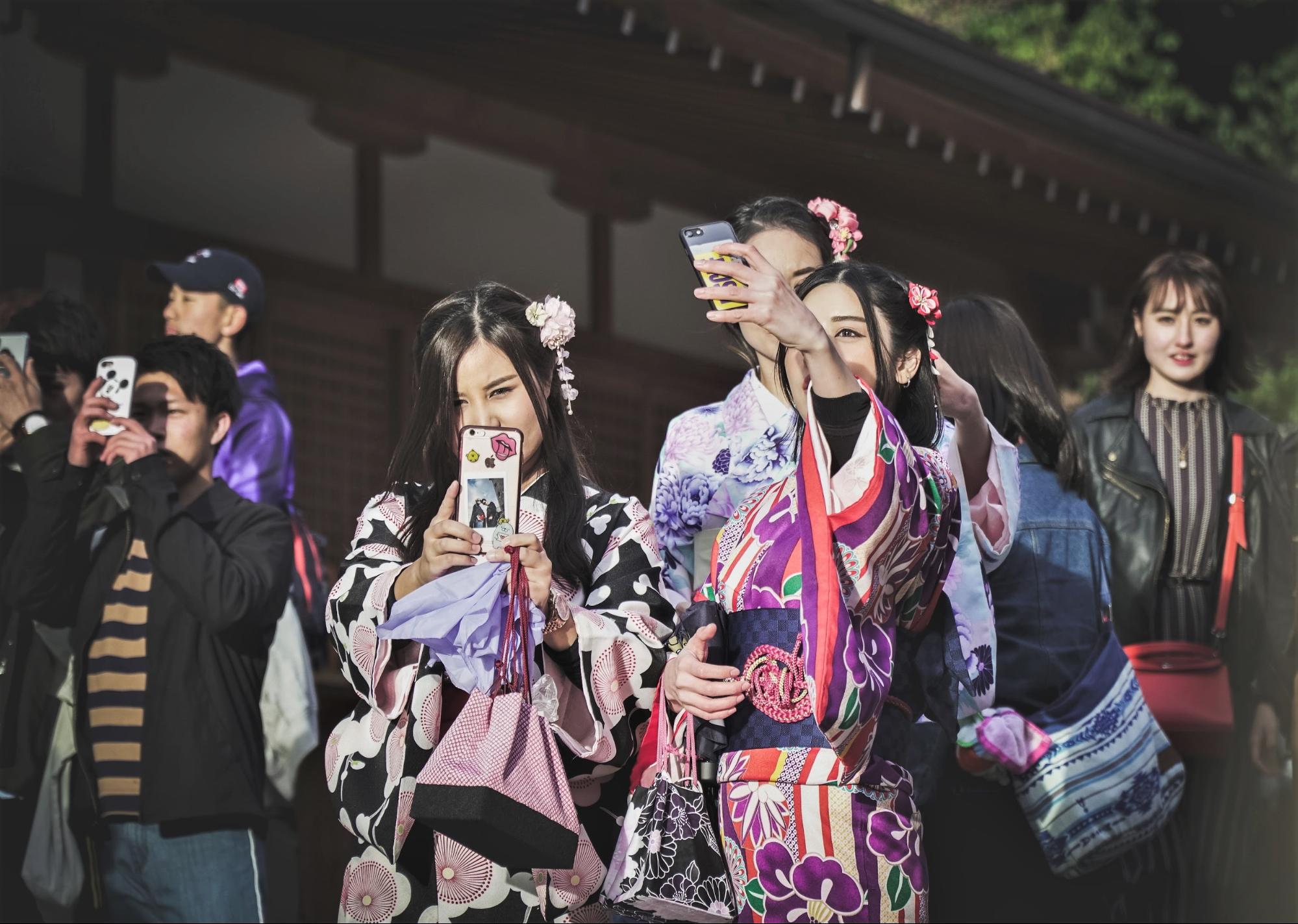
Image adapted from: Free To Use Sounds
In Japanese: すごい!
How to pronounce: soo-go-yee!
“Sugoi” is one of the most overused words in the Japanese language, but it works like a charm to express anything positive – happiness, excitement, wonder, or satisfaction. Delish sushi? Sugoi! Wearing a kimono for the first time? Sugoi! Praised by a local for speaking great Japanese? Sugoi!
Useful Japanese phrases for foreigners
Now that you’ve mastered these important phrases, your time in the Land of the Rising Sun will no longer be marred by confusion and moments of helplessness. Make sure to bookmark this guide so you can refer to it whenever a phrase slips your mind.
Check out these articles:
- Japan travel vloggers to subscribe to
- Simple Japanese dishes to cook at home
- Japanese snack boxes with free shipping
- Most haunted places in Japan
- Top anime recipes to recreate
Cover image adapted from (clockwise from left): Linh Nguyen, DENIS MALERBI and Victoriano Izquierdo
